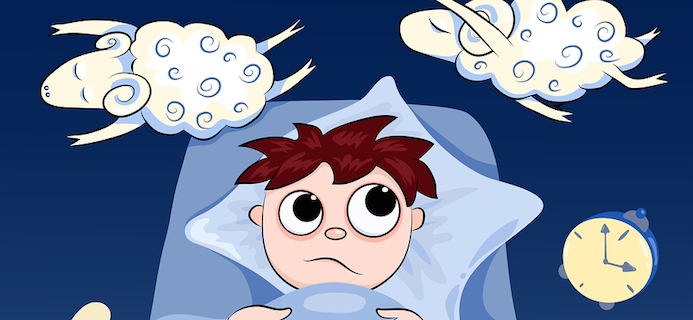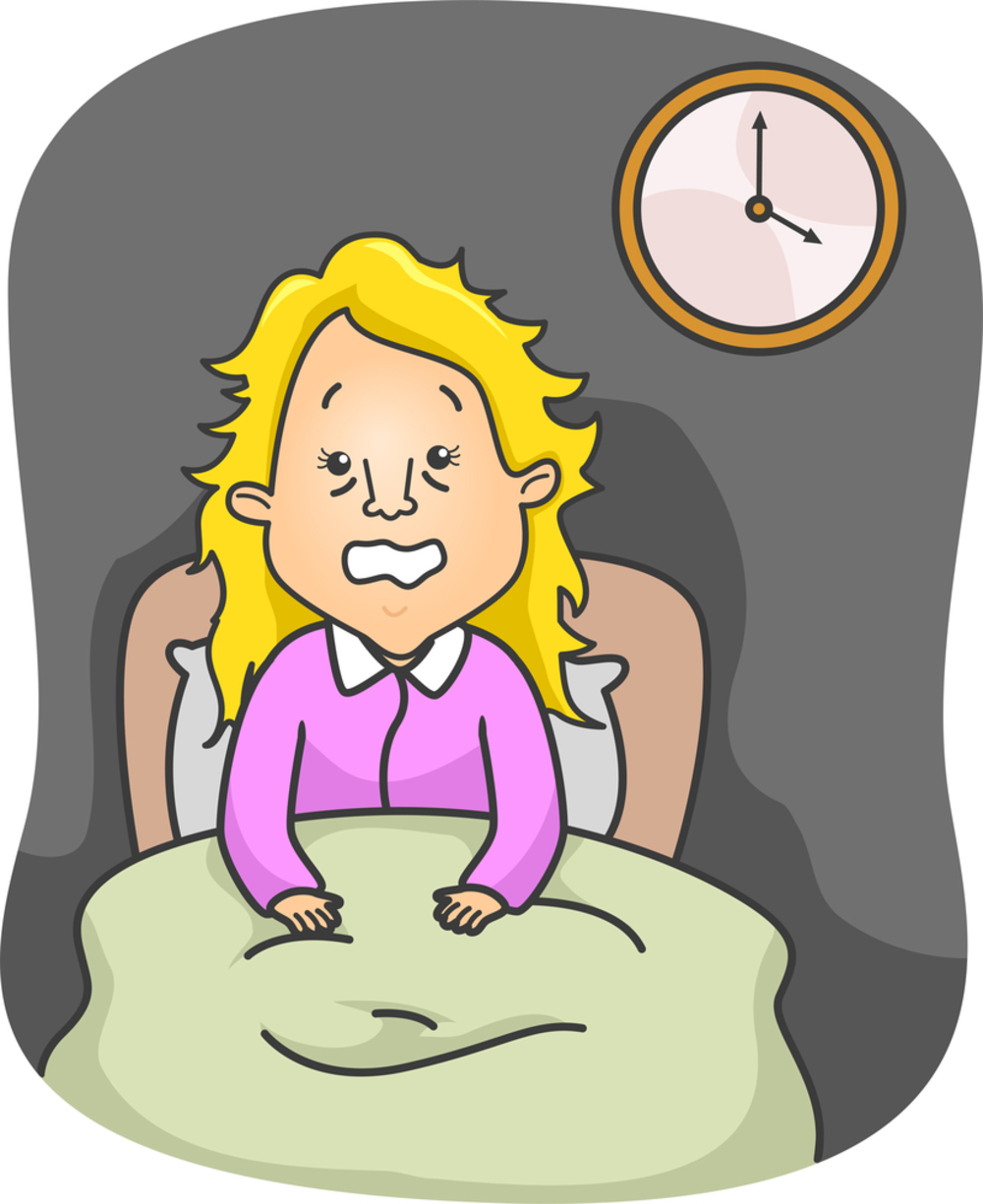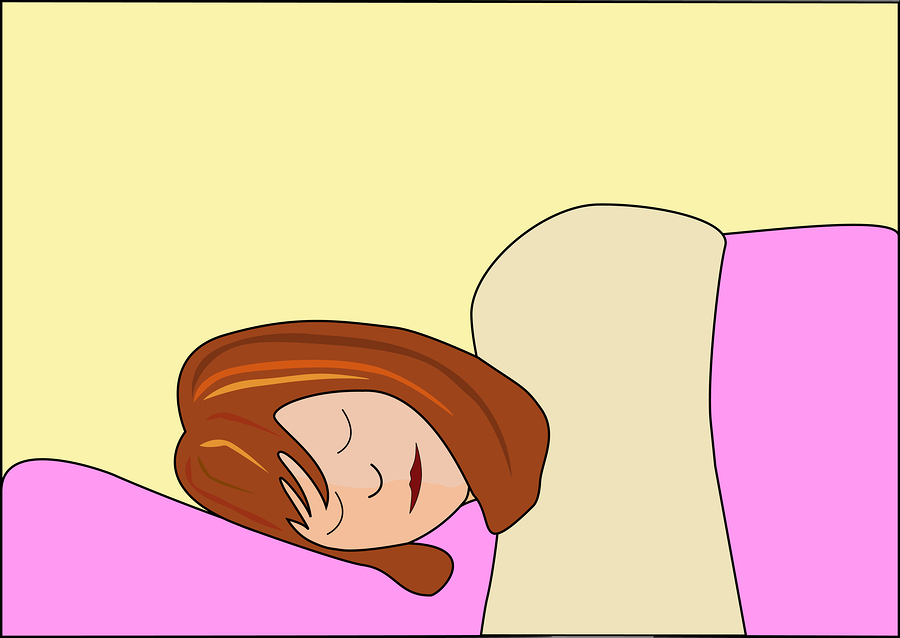Last week scientists warned cutting sleep could damage our health. Yet, some doctors now believe worrying less about slumber could be the key to getting more of it and that anxiety about sleeping enough could be keeping us awake
Last week scientists from four British Universities said that cutting sleep could lead to serious health problems.
In fact, the number of Britons getting just five to six hours sleep a night has risen dramatically in the past three years.
A major Sleep Council report last year found 33 per cent of us get by on 5-6 hours sleep a night compared to 27 per cent in 2010. The average Briton today gets around six hours 35 minutes sleep a night.
Around one in three people complains of suffering from bouts of insomnia, and around one in ten of us now takes some form of sleeping tablet. According to the Health and Social Care Information Centre some ten million prescriptions for ‘hypnotic’ drugs used to treat insomnia – including zopiclone and tamazepam – were issued in 2012.
Yet, for those of us blighted by erratic sleep patterns, some doctors now believe a more blase attitude towards slumber could be the key to getting better sleep; that caring less about our sleep is the key to getting more of it.
‘The paradox with sleep is that focusing away from it helps you sleep better,’ says Colin Espie, Professor of Clinical Psychology, Director of the Sleep Research Laboratory at the University of Glasgow and founder of insomnia treatment website sleepio.com.
‘Being less fixated on sleep is the key to getting a better night’s sleep.’
While almost half of us report being kept awake by stress or worry, increasing evidence suggests that a large proportion of chronic, long-term insomnia is caused not by environmental factors but by the very worry we feel about getting our prescribed eight hours.
In short, this sleep anxiety – our worries about getting enough sleep – is stopping us from getting the sleep we need.
‘There are things our bodies and brains are designed to do automatically,’ says Professor Espie. ‘But those natural functions get impaired by our attention and effort to perform them well. The sexual response is one – if people become focused on it they often can’t function. Sleep is another.’
Someone may go through a life situation such as stress at work or a big event the next day that causes them to have a few bad nights sleep – that’s perfectly natural, he explains.
Professor Espie believes that in a large number of cases of chronic insomnia, defined as having trouble falling asleep or staying asleep for three nights or more over a period of three months, people’s anxiety about getting to sleep and staying asleep is what perpetuates their chronic sleep problems, explains Professor Espie.
‘People with insomnia will often wake in the middle of the night and think, ‘Oh my God I can’t sleep’ and that’s the alarm bell in which they start trying to fix their sleep, to control it.
‘They lie there worrying about not sleeping and its effects on them the next day, thinking ‘Oh, I am awake again, I am going to perform badly at work tomorrow, I am going to feel awful, I need to get to sleep.’
That puts the brain into threat mode, explains Professor Espie, causing anxiety that releases hormones such as adrenalin priming the body to fight off attack.
‘Instead, their bodies do the exact opposite to relaxing, they lie there getting more and more anxious about sleeping which puts their body into a wired state in which sleep becomes physiologically impossible.’
With medical experts regularly citing dire warnings about the health effects of lack of sleep, it’s easy to see why the worry about not getting enough is keeping us awake.
Last week warnings stated that lack of sleep increased risk of Type-2 diabetes, obesity and cancer.
A study from Uppsala University in Sweden found that being sleep deprived caused a similar change in the brain to that seen after a head injury.
Moreover, early research has linked chronic sleep loss to increased risk of Multiple Sclerosis and Parkinson’s Disease.
If that were not enough to keep you awake at night, another study of more than 30,000 adults published in the journal Sleep found that getting fewer than five hours sleep a night can double your chances of heart attack and stroke.
According to Derk-Van Dijk, professor of sleep and physiology at the Surrey Sleep Research Centre, there is no good evidence that not getting enough sleep increases risk of MS or Parkinson’s Disease.
However, ‘For some other conditions such as cardiovascular disease, obesity and diabetes, epidemiological evidence suggests that abnormal sleep patterns are a contributing factor,’ he explains.
Nonetheless, experts like Professor Dijk, are now emphasising the importance of quality, rather than quantity of sleep.
Hospital admissions in 2013 for those with sleep disorders were highest in adults aged 45 to 65.
According to Professor Dijk, while anxiety about feeling sleepy at work the next day can profoundly affect your ability to sleep, research showing that older people are less sleepy during the day on less than the traditional eight hours sleep could allay those fears.
‘Research indicates that older people get less sleep and probably need less sleep and shouldn’t be worried about that,’ he explains.
‘They should be worried if they feel sleepy during the day because that indicates they either don’t get enough quality sleep or there’s some kind of underlying sleep problem,’ says Professor Dijk.
If you’re lying there worrying about the amount of sleep you’re getting, here’s something that might further allay your anxiety – you may be getting more than you think.
READ MORE: 11 food to help you sleep better tonight
‘Often we will ask someone who reports having insomnia, ‘how long did you sleep?’ and the person says, ‘two hours’,’ says Professor Dijk.
‘Then we measure their sleep by recording their brainwaves and other signals and find they actually slept seven hours. This is a common finding in insomnia patients.’
Dr Jessamy Hibberd, a clinical psychologist and author of This Book Will Make You Sleep (Quercus £7.99) believes the basis of most sleep problems in her insomnia patients is trying to force sleep, often caused by anxiety about their functioning at work the next day.
As part of their treatment, she asks them to keep a sleep diary for ten days to gauge the effect of their sleep on their daytime performance.
‘They often find that actually, they might think they have had a terrible night’s sleep but this doesn’t always correlate with having a bad day the next day,’ she says.
Such patients will be kept awake by thoughts such as: ‘Well, if I get less than five hours sleep I won’t function well at work and someone will pick me up on it.’
‘But when they test it out they often find they have got through the day fine, no one has picked them up and it helps allay their fears about the effects of a few hours less sleep on their lives,’ she says.
A large proportion of her patients may find a wedding or moving house affects their sleep, says Dr Hibberd.
‘That’s perfectly natural and is likely to pass, but often people will start thinking about it during the day and making plans around going to bed.
‘They go to bed with anxious thoughts about how they’re not going to cope the next day, their heart races and in time, their beds become a source of anxiety.
Such patients, she explains, often find themselves falling asleep on the sofa in front of the television or sleeping fine when they’re on holidays.
‘Their bedrooms have become associated with such worry about sleeping that they’ve become a place they automatically associate with not sleeping and subsequent sleep anxiety,’ she says.
‘When they’re on the sofa, the pressure is off, so they fall asleep,’ she says.
Trying to trick themselves into not caring about sleep is what is most helpful in alleviating their sleep anxiety, she explains.
Indeed, one of the most effective treatments for insomnia caused by sleep anxiety asks patients to essentially give up on sleep.
‘Not putting any effort into the physical act of sleeping stops the body from suffering the performance anxiety that is behind so much of their long-term insomnia,’ says Dr Hibberd.
Called Paradoxical Intention Therapy, it asks patients to do the opposite of what is causing their sleep anxiety and stay awake.
‘If people are excessively worried about something, they are asked to do the opposite,’ says Professor Colin Espie. ‘If someone is unable to sleep, the paradox is we ask them to try and not sleep.’
‘Patients realise when they try to remain awake, they feel sleepier, which is what normal sleepers do – people who sleep well don’t try to sleep.
‘Paradoxical Intention Therapy re-creates the blase attitude towards sleep that normal sleepers have, in those in whom anxiety about sleep is causing insomnia.’
Professor Espie first pioneered the treatment in a study in 1989 in which it was shown to be an effective treatment for insomnia.
In 2012, he published another study in which paradoxical intention therapy was effective in treating patients with insomnia as part of a course of Cognitive Behavioural Therapy (CBT) which changed patients’ behaviour and thought patterns related to sleep over an eight-week online course.
According to the American Academy of Sleep Medicine, paradoxical intention therapy is one of the few evidence-based psychological treatments for insomnia.
Another is just as ironic. It involves cutting back on the number of hours you’re in bed for.
Sleep Restriction therapy reduces the time spent in bed to match the amount of sleep someone is getting; essentially a programme of mild sleep deprivation.
For example, if someone is sleeping about five hours but spending eight in bed, during a course of Sleep Restriction, they will be required to only go to sleep when they are sleepy and to sleep for five hours, explains Professor Espie.
‘People asked to only sleep five hours often sleep through that period and find themselves building their need for sleep back up,’ he says.
‘Over a period of around six weeks we might build their sleep period back upwards from five hours to five and a quarter and we keep increasing it slowly until that person has discovered what is an optimal amount of sleep for them.’
READ MORE:
9 BEST products for tired skin
Can’t sleep? Milk and Brazil nuts may help, says study
8 sleep myths making you tired
5 minute yoga sequence to help you sleep
Like this article? Sign up to our newsletter to get more articles like this delivered straight to your inbox.























































